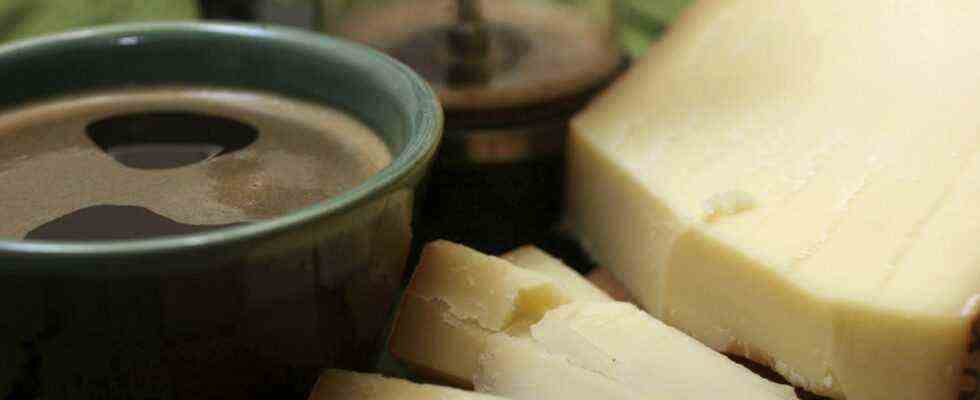A salty undertone, with fruity notes. The dough should be ivory in color and slightly moist to the touch, holes about five millimeters in diameter are desirable, isolated cracks are allowed. This is how it has to look, taste and feel: the famous Gruyère cheese from Gruyères – at least in Switzerland and the EU, where the name is protected.
The Swiss authorities proudly write that cheese dairies around the town of Gruyères in the canton of Friborg have been making the famous hard cheese from raw milk for around 900 years. Today, only those producers are allowed to write “Le Gruyère” in capital letters on their cheeses who comply with the detailed specifications of the Swiss “specifications” to origin, production and quality. Above all, this means that the cheese wheels must come from the cantons of Fribourg, Vaud, Neuchâtel, Jura or from the French-speaking part of the canton of Bern. There is one exception for historical reasons for the French border region: Farmers are also allowed to produce Gruyère there. In several agreements, the two cheese countries have agreed that they will share the name. Since 2013, Swiss or French versions of Gruyère cheese have been a protected designation of origin throughout the EU.
So if even Switzerland and France agree on the use of the noble name, it is believed that there shouldn’t really be any problems. However, a recently published court ruling in the USA makes it clear that the uniqueness of European Gruyère cheese is anything but undisputed internationally. In the US state of Virginia, a federal judge ruled that Gruyère sold in the USA could be produced anywhere. In the past, the name would certainly have referred to the region of origin. But after decades of selling Gruyere cheese made outside of the protected region, the term has become “a common term” for cheese buyers in the United States. And you can’t register one as a trademark in the USA.
For the Swiss and French Gruyère producers, who had joined forces for the lawsuit in the USA, the judge’s decision is a serious defeat. “We are disappointed,” said Philippe Bardet, head of the Association of Swiss Gruyère Producers. in several interviews. Together with his French colleagues, Bardet has been trying for years to protect Gruyère as a designation of origin in the USA – without success. This is “consumer deception” so Bardet.
On the European side, there is now great indignation. “Americans are stealing our Gruyère!” headlines the Swiss newspaper view, and on Twitter a journalist from French-speaking Switzerland etched: “Americans just love their crappy, misnamed cheeses, so just let them have them.” But the Franco-Swiss cheese consortium doesn’t want to give up that easily. The Gruyère associations have already appealed the verdict. Perhaps at some point they will be able to do what the French have already done with the Roquefort: it has to come from France, even if US stores sell it.

